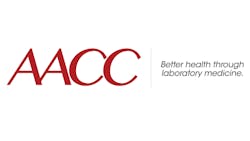CBD, the latest wellness craze, won’t cause users to fail a drug test—but its lesser-known cousin CBN will
A new study shows that a person taking the medicinal cannabis derivative cannabidiol (CBD) won’t fail a drug test for marijuana—but a person taking the emerging sleep aid cannabinol (CBN) will. These findings were presented at the 71st AACC Annual Scientific Meeting & Clinical Lab Expo and could prevent people from being unfairly penalized for using CBN.
CBD and CBN are both cannabis derivatives that have been gaining attention for their ability to confer potential health benefits without causing intoxication. The wellness industry has exploded with CBD-based products that claim to help conditions ranging from anxiety to acne, and last year, the Food and Drug Administration approved the first CBD-based drug for the treatment of severe epilepsy. Though CBN is not as well known yet as CBD, more people are also starting to use it as a sleep aid. With the popularity of these compounds rising, it is vital for healthcare providers to understand how CBD and CBN interact with screening tests for drug abuse. As just one example of why this is important, certain healthcare institutes do not allow patients to use marijuana if they are taking opioids for pain management. If these patients test falsely positive for marijuana use due to CBD or CBN, they could be unfairly denied their prescriptions as a result.
A research team led by Grace Kroner, PhD, of the University of Utah Health Sciences Center in Salt Lake City, has elucidated how non-intoxicating cannabis derivatives react with immunoassays, which are the most common type of drug screening test. The team spiked three different batches of clean urine with 1000 ng/mL each of CBD and CBN, in addition to 1000 ng/mL each of two more cannabis compounds that could have therapeutic benefits: Cannabichromene (CBC) and cannabigerol (CBG). The researchers then tested the different urine batches with two immunoassays called the Microgenics MultiGent Cannabinoids test and the Beckman Coulter Emit II Plus Cannabinoid test. For all three batches, neither test produced a false-positive result in reaction to CBD, CBC, or CBG. However, the Emit II Plus showed notable reactivity with CBN. Further investigation revealed that as little as 100 ng/mL of CBN triggers a false positive for marijuana use with this test.
Thanks to these findings, healthcare institutes that use these two tests will be able to interpret drug test results with greater accuracy. Just as importantly, this study also demonstrates that different drug screening tests produce variable results—and that test manufacturers and healthcare institutes alike need to assess the cross-reactivity of their tests to protect patients from false positive drug screens.

